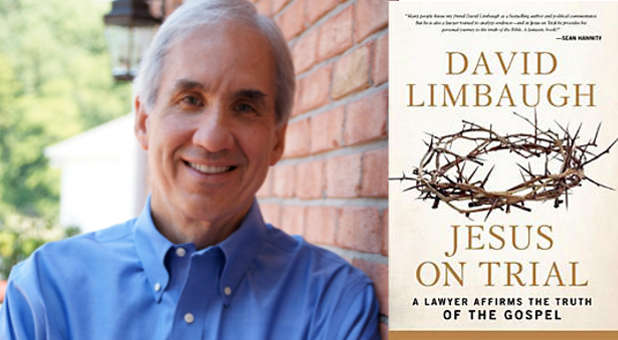I attended an interesting debate last Saturday night between Justin Schieber and Blake Giunta. Blake used the fine-tuning evidence as one argument for God’s existence and Justin countered by pointing to the Coarse-Tuning argument.
What is the Coarse-Tuning Argument?
Assuming that the various finely-tuned constants can take on any value up to infinity, then any finite life-permitting range (even a large one) would become an infinitesimal subset. Thus, even coarsely-tuned parameters could be considered improbable. This is often seen then as a reductio ad absurdum against fine-tuning – for then we should be equally surprised no matter how wide the range of life-permitting values is for a given constant (so long as it was finite).
Blake followed Robin Collins in arguing that coarse-tuning could still represent an improbable situation if indeed we knew that the possible values for the various constants could go to infinity. However, I don’t think many physicists would be persuaded of anything improbable if the universe only required coarse-tuning rather than fine-tuning to support life. In fact this was the expectation prior to the pioneering work of Hoyle, Barrow, Tipler, Carter, and others. No one that I’m aware of argued that physical constants being life-permitting pointed to design until the life-permitting range of constants was discovered to be exceedingly narrow.
Why coarse-tuning would not be accepted as improbable?
Most physicists did not accept a Coarse-Tuning Argument not because it might not be improbable if the possible range was infinite, but rather due to skepticism that the possible range of constants could be infinite. If David Hilbert was right, actual infinities are nowhere to be found in reality and it would be impossible for the constants to be infinite. See my previous blog for a discussion of some of the issues associated with actually infinite quantities. Even if Hilbert is incorrect, one could still argue that one can estimate probabilities by taking limits and that Hilbert’s Hotel shows simply the counter-intuitive nature of dealing with infinities. Even if the actually infinite is possible, physicists generally reject candidate theories that entail the actually infinite – at least if the equations cannot be renormalized to avoid the infinities.
Is the range of possible values for the constants infinite?
The key assumption in the Coarse-Tuning Argument is that the possible range of constants could be infinite. However as Luke Barnes has pointed out the concept of mass becomes incoherent if fundamental particles could exceed the Planck mass. Particles over a certain mass would form a black hole and therefore be impossible to create. Does it really seem physically possible that an electron could have a mass of a billion tons? Might it be prohibitively difficult to create particles with such a huge mass due to the energy or energy density requirements in making it? Would such a massive particle be stable? We could treat the case that the electron’s mass was greater than some huge value as corresponding to there being too few electrons after some small amount of time in which the universe expanded and cooled. This special case would obviously be life-prohibiting as electrons are necessary for chemistry, stellar fusion, and other processes critical for life.
What about force strengths?
Another class of parameters that have to be finely-tuned is force strengths. Most physicists think that at least 3 out of the 4 fundamental forces are unified at certain energy levels – and probably all 4. Thus, there is an underlying relationship between the forces that would constrain their relative strengths. Ratios of the force strengths would not be infinite. If a constant governing a force strength had a value of 0, that special case could also be evaluated with respect to its ability to support life. All 4 fundamental forces are thought to be necessary for life although there are ways to have life without the weak force – but only by compensating with additional fine-tuning in other aspects.
Robin Collins argues that once force strengths become too large we lose our ability to predict whether or not such a scenario would be life-permitting – there could be new physics at such large energy scales. This is not a problem for the fine-tuning argument as defined by leading advocates though because the argument only addresses the parameter ranges for which we can reliably evaluate suitability for life – we consider only the epistemically-illumined region. Here is how John Leslie explains it in his Universes book (which I highly recommend):
If a tiny group of flies is surrounded by a largish fly-free wall area then whether a bullet hits a fly in the group will be very sensitive to the direction in which the firer’s rifle points, even if other very different areas of the wall are thick with flies. So it is sufficient to consider a local area of possible universes, e.g., those produced by slight changes in gravity’s strength, . . . . It certainly needn’t be claimed that Life and Intelligence could exist only if certain force strengths, particle masses, etc. fell within certain narrow ranges . . . . All that need be claimed is that a lifeless universe would have resulted from fairly minor changes in the forces etc. with which we are familiar. (pages 138-9)
In other words, it still looks like the rifle was aimed if it hits a tiny group of flies surrounded by a vast wall without any flies – even though there might be other flies on parts of the wall we cannot see. A design inference can be justified even though we lack complete knowledge about the life-permitting status of all of the possible parameter space. We’re only evaluating the local, finite region for which a determination can be made.
A finite number of physically possible constants?
If one takes the fine-tuning argument based on physically possible parameter space rather than metaphysically possible parameter space, then it’s expected that the range of values for constants is finite. I’ve previously linked to this important article by John Barrow outlining different ways in which physics itself can drive constants to different values. For example, spontaneous symmetry breaking in the early universe affected various parameters related to electromagnetism and the weak force. The Weinberg angle could have taken on other values that would have resulted in alternate derived parameters. However, nothing in those equations allow any of the parameters to go to infinity.
Barrow also notes that unifying gravity and quantum mechanics is only possible if “the true constants of nature are defined in higher dimensions and the three-dimensional shadows we observe are no longer fundamental and do not need to be constant.” Because of quantization, the number of ways of compactifying these extra spatial dimensions would be finite. We can treat the case that quantization is not in effect as a special case that would not plausibly support life. Without quantization, atoms are not stable and would not have consistent properties permitting information to be stored. Even String Theory entails a finite number of possible sets of fundamental constants. Many theorists think it’s quite large, perhaps 10500, but all we need is for it to be finite to avoid the infinities required by the coarse-tuning argument. Refer to my previous blog for other reasons to expect a finite range for constants of nature.
Initial conditions
Cosmologist Luke Barnes also points to the fine-tuning associated with the initial conditions of our universe as an example immune from the problems of infinities. Unless one thinks that probabilistic statements cannot be made despite the reputation of statistical mechanics as a well-established physics discipline, one is able to conclude that our universe started out in an incredibly special, highly-ordered state. The number of life-permitting states is extraordinarily tiny compared to possibilities as Roger Penrose has computed – see my blog for details. Since the number of particles was finite and the volume of space in the early universe was quite small, there is no problem of infinities that prohibits a rough probability estimate.
Summary
More work should be done in assessing the possibilities of infinities and the potential impact on the fine-tuning argument. However, I see no reason that Coarse-Tuning would be a reductio ad absurdum against fine-tuning because if we knew for sure that the constants had an infinite range the finiteness of the life-permitting range should suffice for demonstrating that life-permitting universes are a tiny subset among possibilities. However, physicists are rightly skeptical that these constants could be infinite. I’ve listed several reasons for thinking that the constants couldn’t have an infinite range – which is why physicists were not astounded until they discovered that life-permitting ranges are tiny among possibilities that can be evaluated. We can compute that the universe would be lifeless if gravity were 40 orders of magnitude stronger even though we might have some slight uncertainty about what happens if it were 4000 orders of magnitude stronger and do not know a precise upper bound of what is physically possible.






